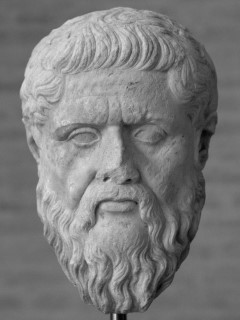
Publication details
Publisher: Springer
Place: Berlin
Year: 2011
Pages: 13-26
Series: Contributions to Phenomenology
ISBN (Hardback): 9789400715028
Full citation:
, "Thauma idesthai", in: Philosophy's moods, Berlin, Springer, 2011


Thauma idesthai
the mythical origins of philosophical wonder
pp. 13-26
in: Hagi Kenaan, Ilit Ferber (eds), Philosophy's moods, Berlin, Springer, 2011Abstract
Ancient philosophy sees its own origin in wonder. Although this mood is central for both Plato and Aristotle they nevertheless say very little about the affective dimension of wonder. If wonder is philosophy's essential mood, how does the philosopher experience it? How exactly is wonder transformed into reflection, philosophical thought or speech? How is a philosopher born? This essay attempts to answer these questions by reading Book One of Aristotle's Metaphysics against the background of Hesiod's Theogony. Its central claim is that for the ancients wonder is tied to an experience of arche. The essay explores the manner in which wonder evokes an experience of arche in Hesiod's treatment of the creation of the first woman and suggests that the Hesiodic position carries crucial implications for our understanding of philosophical wonder.
Cited authors
Publication details
Publisher: Springer
Place: Berlin
Year: 2011
Pages: 13-26
Series: Contributions to Phenomenology
ISBN (Hardback): 9789400715028
Full citation:
, "Thauma idesthai", in: Philosophy's moods, Berlin, Springer, 2011

